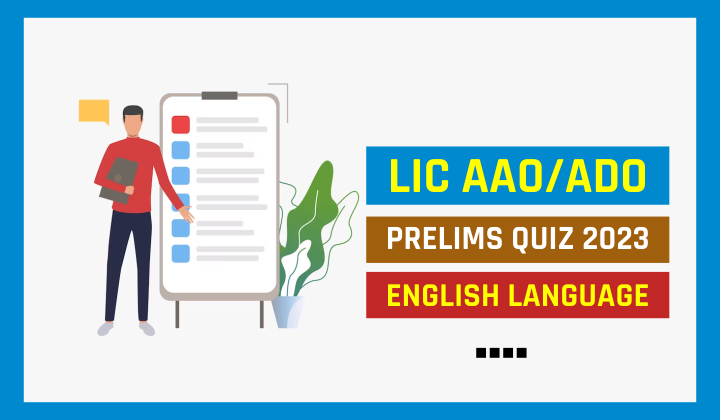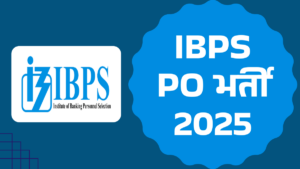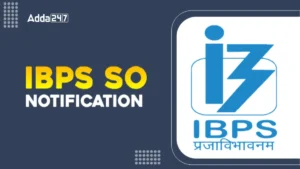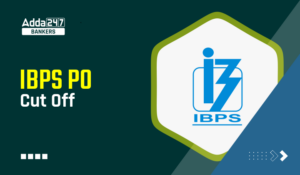Directions (1-8): Read the following passage carefully and answer the questions given below it. Certain words are given in bold to help you locate them while answering some of the questions.
It is good that Reserve Bank of India (RBI) governor Urjit Patel has finally broken his long silence. Unlike his predecessors, Patel has been reticent in indicating the thinking of the central bank. While the interviews and speeches of governors and deputy governors work as powerful signalling and reassuring measures—both to the markets and to the general citizenry—the silence has also been an eerie signalling mechanism that was shaking our confidence. It is good now that there is some scope for debate and dialogue. The governor’s speech on 14 March at the Gujarat National Law University, Gandhinagar, highlights significant issues about the difference in regulation of public and private sector banks. The governor raised the issue of dual control over banks based on ownership issues. The problem is deeper than this. But while recognizing this, one is not sure that the current crisis could have been addressed in the framework suggested by Patel. He talked about powers to make board-level changes and forced mergers. Those powers are in the nature of deterrence and are too drastic to be curative in the current instance.
Let us break up the issue of dual control. This issue is not specific to public sector banks. Even in case of the cooperative banks, dual control was a festering issue, with the state governments, through the registrar of cooperative societies, having most of the powers that Patel alluded to. This is by virtue of the institutions being incorporated under The Co-operative Societies Act. This issue was addressed when Y.V. Reddy was the governor. The RBI was able to arrive at a regulatory framework for the cooperative banks. This was done through a memorandum of understanding with each state government which defined how the governance change and merger powers would be exercised in consultation with, and upon the recommendation of, the RBI. Therefore, pending deep reforms on the ownership and governance of public sector banks, there is a template for regulatory framework available. Deep reforms, as recommended by the P.J. Nayak committee, needs political will, which seems to be lacking every time.
However, in the case of public sector banks, the problem of dual control is even deeper. In addition to ownership and governance-level control, there is also significant operational control that the Union finance ministry exercises. This control bypasses the boards. That is why one cannot hold the board residually responsible for the performance of the bank. A programme like the Pradhan Mantri Jan Dhan Yojana (PMJDY) is operationally guided by the ministry and bypasses the board-directed strategy. This is control on the banks through the tyranny of circulars, which doesn’t affect private banks. Comparing the PMJDY numbers of private banks and their public sector peers is sufficient to make the point. So, having identified that the framework for regulating public sector banks is different, can the governor cry victim, and does this let the RBI off the hook? Not really. How about exercising autonomy by suo motu recommending corrective action to the government if it has a problem with a specific bank? The government may not accept it, as it has not been accepting many of the recommendations of the central bank, but it would have at least done its duty.
Second, the governor is treading an even more dangerous path by pinning the blame on limited powers. Very much like the government exercising control through the board and through circulars, even the RBI has a board position in each public sector bank. Further, the RBI representative is on the management committee (that approves loans beyond a certain ticket size), the audit committee, the committee of directors (for reviewing vigilance cases) and the remuneration committee of each of these banks. So, not only does the RBI have regulatory oversight, it has board and sub-committee presence in each public sector bank, which should give the RBI much greater insights than it would get into a private bank. Also, the RBI is party to the selection of the whole-time directors of the bank through the selection committee and through its membership on the Banks Board Bureau. The RBI has powers to remove the non-official directors appointed by the Union government as well as the shareholder directors if they do not fulfil the fit-and-proper criteria— section 3AB and 3B of the Banking Companies (Acquisition and Transfer of Undertakings) Act. Moreover, the RBI has powers to appoint an additional director as per section 9A of the above Act. Theoretically, the RBI has a significant say in the constitution of the board of a public sector bank.
While there is a great deal of reform to be undertaken in the governance and management of public sector banks, the line that the governor has taken, of inadequate powers to act, may be untenable. The framework for the exercise of powers in private sector banks is different from the framework for public sector banks. This has to be recognized. In the current instance, it would have been more honourable for the governor to own up the failure, and use this opportunity for deep reform, than play victim. That there is a crying need for reforming the governance structure of public sector banks is a valid point—but that is a matter for a separate debate.
Q1. What is/ are the problem (s) facing by banking industry nowadays?
(a) increase in the rate of fraudulent activities.
(b) lack of implementation of the reforms in favor of banks.
(c) dual control over banks based on ownership.
(d) Both (b) and (c)
(e) All
Q2. Which of the following sentence is not forming part of the passage?
(a) The issue of dual control had also confronted by previous governors of RBI.
(b) The consent of government over reforms, for banks, is missing most of the time.
(c) Ownership issues is not limited to public sector banks.
(d) The reforms, related to cooperative banks, must be exercised with recommendation of state governments
(e) The regulation of public and private sector banks is not same.
Q3. “The problem of dual control is even deeper in public sector banks”, what does the author mean by the statement?
(I) Responsibility of the performance of the bank cannot be on one authority.
(II) Decision making process and its implementation goes through several ratifications.
(III) The policy made by the government circumvents the strategy made by the board of the bank.
(a) Only (I)
(b) Only (III)
(c) Both (I) and (II)
(d) Both (II) and (III)
(e) All (I) (II) and (III)
Q4. According to the passage, how RBI can make PSUs work efficiently?
(I) RBI should sign memorandum of agreements with private sector banks.
(II) RBI should not make any authority responsible for any discrepancy.
(III) RBI, having a significant role to play in boards of PSUs, must focus on implementing deep reforms.
(a) Only (I)
(b) Only (III)
(c) Both (I) and (II)
(d) Both (II) and (III)
(e) All
Q5. The most appropriate title of the passage is
(a) RBI: back bone of PSU
(b) Adopting suo motu autonomy.
(c) Framework in Public and private sector banks
(d) Is the Reserve Bank of India toothless?
(e) Overcoming Dual control.
Q6. Which decision of Governor did the author termed as ‘illogical’?
(a) board level changes and forced mergers
(b) turning towards privatization of banks
(c) making PSUs controlled by RBI only
(d) recruiting only specialized employees for banks
(e) All of the above.
Q7. Which of the following alternatives among the five options provides the most similar meaning(s) of the word given in BOLD as used in the passage?
Festering
(A) abounding
(B) intensify
(C) aggravate
(D) regnant
(a) Only (A)
(b) Only (B)
(c) Both (A) and (B)
(d) Both (B) and (C)
(e) All
Q8. Which of the following alternatives among the five options provides the most opposite meaning(s) of the word given in BOLD as used in the passage?Eerie
(A) shrinking
(B) natural
(C) appalling
(D) menacing
(a) Only (A)
(b) Only (B)
(c) Both (A) and (B)
(d) Both (B) and (C)
(e) All
Directions (9-15): Read the following passage carefully and answer the questions given below it. Certain words are given in bold to help you locate them while answering some of the questions.
Paragraph 1: Nirav Modi case has once again opened a chasm between the finance ministry and the Indian central bank. Reserve Bank of India (RBI) governor Urjit Patel said in a powerful speech last week that various legal constraints make it difficult for the banking regulator to discipline banks that are owned by the government. Public sector lenders account for three-fourths of the Indian banking system, far more than in any other market economy. This is not the first call for banking regulation that is ownership-neutral. A similar point was made by the Financial Sector Legislative Reforms Commission as well as by former governor Raghuram Rajan in a speech in August 2016. There is no doubt that all banks should be governed by the Companies Act and the Banking Regulation Act, rather than specific acts of Parliament such as the State Bank of India Act of 1955 and the two Acts that nationalized banks in 1969 and 1979. Paragraph 2: Finance ministry officials have hit back by saying that the RBI has enough powers over public sector banks, while it is the government that has limited oversight on operations. However, what Patel has said deserves closer attention, rather than looking at his speech as one side of a blame game being played out by the two masters of our financial universe. No regulator can evade the responsibility of not catching a fraud of this size but it is also incorrect to say that the scam at Punjab National Bank is only about lax supervision. It is now quite clear that the lender had not followed the instructions sent by the RBI to banks in 2016. The argument that Nirav Modi could milk the banking system only because the regulator was not alert could lead to calls for even more intrusive supervision by the RBI, leading to the risks of regulatory overkill. There are already early demands for what could end up being excessive intrusion.
Paragraph 3: Most of the public debate in India over the past two weeks has naturally focussed on the role of supervision and regulation by the RBI. The role of regulation should be seen in tandem with three other deep problems: perverse incentives for bankers, internal controls and corporate governance. Each of these were also highlighted in the aftermath of the 2008 financial crisis that began with the collapse of Lehman Brothers. First, the perverse incentives at the heart of Indian banking are as follows. Bankers are often under pressure from the government to pump up lending volumes, there is little downside when the loans turn bad since the taxpayer foots the bill. Success is judged by loan origination rather than the quality of the portfolio. Second, the internal controls inside bank branches are weak, and recent global experience shows that many banking frauds take place in the grey areas where databases as well as regulatory regimes overlap. For example, the problem at Punjab National Bank went undetected for so long because the SWIFT messaging system was not linked to the core banking software, precisely the sort of grey area where fraud becomes more possible. The corporate governance problem is that bank boards are passive. Improved corporate governance was a key element of the Indradhanush plan for banking reform that was announced with so much fanfare in 2015. The Bank Boards Bureau that was expected to lead the change on the corporate governance front has been a failure.
Paragraph 4: The upshot: RBI cannot wash its hands of what has happened, but the optimal response should not be calls for a heavier hand of regulation or footloose investigations that scare other bankers from even honest lending. Instead, there should be a harder look at the perverse incentives that lie at the heart of the Indian banking system, the lack of data analytics to detect outlier lending activity, the risks of credit bubbles in a banking system dominated by the government, and the overall institutional framework of the Indian financial system.
Finally, too many people accused Patel of lacking independence after the demonetisation episode. He has since spoken out against attempts to interfere with the working of the monetary policy committee, held interest rates despite the pressure to cut them, warned about the fiscal risks from farm loan waivers, and spoken about the excessive taxation of capital incomes. The RBI governor has in the past few months proved that he is his own man. The working relationship between New Delhi and Mumbai has been smoother in the recent past compared to what happened over the past decade. However, the recent spat could be the first salvo in a longer battle unless finance minister Arun Jaitley and Patel move quickly to prevent any further tensions.
Q9. What issue has been raised by the governor of India’s central Bank RBI?
(a) Aggravating lending rate of banks.
(b) Banks are not taking into consideration the specialized people for specialized tasks of banks.
(c) Banks are not registered under the companies Act and Banking regulation Act.
(d) Banking regulation being regulated by two regulators.
(e) Under supervision of banks.
Q10. What is the cause of fraudulent activities happening in public sector banks?
(a) Lack of reforms made for overcoming the loss.
(b) Negligence in management and operation.
(c) Not following the guidelines as directed by RBI.
(d) Both (b) and (c)
(e) All
Q11. What are the areas which needs attention for evading the loss in banks?
(I) The RBI should recruit and appoint the specialized person for a specialized tasks.
(II) Deep reforms are needed to be implemented actively by the Bank Board Bureau.
(III) Bankers should not be pressurized to increase the lending rate.
(a) Only (I)
(b) Only (III)
(c) Both (I) and (II)
(d) Both (II) and (III)
(e) All are correct
Q12. What upshot has been discussed in the paragraph 4?
(a) RBI should make immediate steps for proper regulation and investigation of the PSUs.
(b) RBI making necessary investigation of public sector banks leads to prevention of bad debt issue.
(c) The failure of the banking reforms by bank board bureau cannot be neglected and immediate steps should be taken by RBI in order to overcome the loss.
(d) The strict regulations of RBI in response to the failure of governance will not work in order to overcome the situation.
(e) The RBI is made responsible for the failure of the corporate governance.
Q13. What is the reason behind ‘Urjit patel’ being called as “he is his own man”, by the author?
(I) He accused the plans and policies made by the government.
(II) He made himself responsible for the failure of the governance in the public sector banks.
(III) He spoke about making his own decisions, despite being accused by people, regardless of finance ministry.
(a) Only (I)
(b) Only (III)
(c) Both (I) and (II)
(d) Both (II) and (III)
(e) All are correct
Q14. What is the tone of the author in context to the passage?
(a) Narrative
(b) Analytical
(c) Didactic
(d) Sarcastic
(e) Restrictive
Q15. Which of the following alternatives among the five options provides the most similar meaning(s) of the word given in BOLD as used in the passage?Outlier
(A) oddity
(B) anomaly
(C) aberration
(D) irregular
(a) Only (A)
(b) Only (B)
(c) Both (B) and (C)
(d) Both (C) and (D)
(e) All of the above
Solutions
S1. Ans. (c)
Sol. We can infer from first paragraph of the passage where governor of RBI pointed out the significant issue of dual control of banks. Hence only option (c) is correct.
S2. Ans. (d)
Sol. Refer the second paragraph of the passage “This was done through a memorandum of understanding with each state government which defined how the governance change and merger powers would be exercised in consultation with, and upon the recommendation of, the RBI.” From which we can conclude that the reforms need the consultation and recommendation of RBI. Hence option (d) is not forming a part of the passage.
S3. Ans. (b)
Sol. Refer the third paragraph of the passage “there is also significant operational control that the Union Finance ministry exercises. This control bypasses the boards.”
S4. Ans. (d)
Sol. As mentioned in the last section of the passage that RBI holds a major position and a significant role to play in PSUs like appointment, management, audit etc. hence RBI must not blame to specific power and must implement deep reform for strengthening the condition of bank. Hence option (d) is the correct choice.
S5. Ans. (d)
Sol. “Is the Reserve Bank of India toothless?” is an appropriate title of the passage.
S6. Ans. (a)
Sol. With reference to the first and last paragraph of the passage, we can conclude that the author is not satisfied with the decision of governor. Hence option (a) is the correct choice.
S7. Ans. (d)
Sol. Festering means to become intense. Hence, in context to the passage, it has same meaning as intensify and aggravate.
S8. Ans. (b)
Sol. Eerie means strange and frightening. Hence it has opposite meaning as natural
S9. Ans. (d)
Sol. As mentioned in the speech of RBI governor Urjit Patel’s speech “various legal constraints make it difficult for the banking regulator to discipline banks that are owned by the government.” From which we can conclude that banking regulation is not just regulated and operated by RBI but government too. Hence option (d) is the correct choice.
S10. Ans. (d)
Sol. As mentioned in the second paragraph that scam happened in PNB is about lax supervision and not following the instructions of RBI. From these statements, we can infer that sentences (b) and (c) are correct.
S11. Ans. (d)
Sol. Refer the third paragraph of the passage.
S12. Ans. (d)
Sol. In reference to the paragraph 4, the upshot or consequence in response to the failure of governance by Bank Board Bureau, the strict regulations of RBI restrict the other bankers from lending. Hence option (d) is correct.
S13. Ans. (b)
Sol. Refer the fourth paragraph of the passage “He has since spoken out against attempts to interfere with the working of the monetary policy committee, held interest rates despite the pressure to cut them, warned about the fiscal risks from farm loan waivers, and spoken about the excessive taxation of capital incomes. The RBI governor has in the past few months proved that he is his own man.”
S14. Ans. (b)
Sol. The author’s tone is Analytical as the author has elucidated the speech of Urijit Patel showing the limits of regulation and areas needed to be improved.
S15. Ans. (e)
Sol. Outlier means something that deviates from what is standard, normal, or expected. Hence all the options are correct.
Click Here to Register for Bank Exams 2021 Preparation Material





 IBPS PO Recruitment 2025 Out: IBPS PO के...
IBPS PO Recruitment 2025 Out: IBPS PO के...
 IBPS SO 2025: भर्ती नोटिफिकेशन जारी, यहा...
IBPS SO 2025: भर्ती नोटिफिकेशन जारी, यहा...
 IBPS PO Cut Off 2025 Out: IBPS PO कट ऑफ ...
IBPS PO Cut Off 2025 Out: IBPS PO कट ऑफ ...

